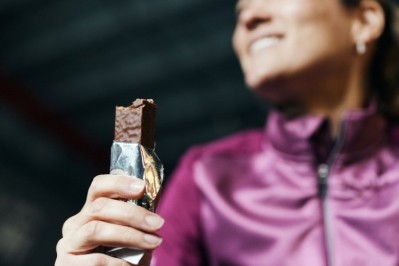Fonterra makes waves in the animal-free ingredients space

Dairy co-operative Fonterra has forged a partnership with biomass fermentation company Superbrewed Food and precision fermentation firm Nourish Ingredients to develop animal-free protein, fats and lipids.
This makes Fonterra the latest major dairy company to explore fermentation-derived protein production following similar commitments made by Danone and Leprino Foods, respectively.
Superbrewed Food manufactures a biomass fermentation-derived protein ingredient that has been approved for use in the food industry by the US Food and Drug Administration. (The company has also filed market authorization applications with EU, British and Canadian regulators.) More recently, Superbrewed struck a manufacturing partnership with ingredients producer Döhler GmbH to increase production capacity for the fermentation-derived protein ahead of launching its first retail products.
The US firm’s ingredient contains more than 85% protein content – with 60% being the minimum requirement for use as a food ingredient – and also boasts ‘a high content’ of essential and branched chain amino acids as well as minerals and vitamins such as iron, zinc, phosphorous and B12, making it a whole food ingredient rather than an isolated protein source. Applications include dairy and sports nutrition, meat, confectionery, and bakery and snacks products.
Besides Fonterra, the Bel Group entered a strategic collaboration with Superbrewed back in 2021 with the view to develop a new line of dairy-free cheese.
With Nourish Ingredients, Fonterra will work on animal-free fats, which can provide enhancements to non-dairy categories such as bakery that traditionally rely on dairy lipids. According to the New Zealand co-op, Nourish' precision fermentation-derived lipids boast the 'authentic creamy taste, aroma and mouthfeel of dairy foods' and is suitable for applications including cheese, cream, and butter.
Jeremy Hill, Chief Science & Technology Officer at Fonterra, said the company first tasted Nourish's proprietary product in January 2024. “Nourish Ingredients is taking a unique approach that aligns perfectly with Fonterra’s focus on leadership in dairy innovation science and being at the forefront of such innovative new food ingredients," he said. "By partnering together, we can explore new ways to help meet the growing global demand for great-tasting, texturally appealing products, that deliver exceptional experiences to customers."
“Dairy will always be at the core of our business, now and in the future," he added. "At the same time, ingredients produced through emerging technologies can work seamlessly in and alongside our dairy products, expanding the range of products and choices we can offer to customers and consumers.”
From R&D to climate targets
What is biomass fermentation?
According to The Good Food Institute’s 2023 State of the Industry Report, biomass fermentation leverages microorganisms that can grow fast and harbor high levels of protein to produce protein at scale. Microorganisms that can be used in the process include yeast, fungi or microalgae. Companies that leverage biomass fermentation include Quorn and Meati.
Biomass fermentation is not to be mistaken with precision fermentation, where microbes are programmed to produce specific functional ingredients, such as enzymes, proteins, vitamins and fats.
The two partnerships will help Fonterra meet both demand for increasingly sought-after sustainable ingredients while also allowing the organization to hit its climate goals.
The co-op has committed to reducing its emissions from dairy by 30% per ton of fat and protein-corrected milk by FY2030, a target that was recently validated by the Science Based Target Initiative. As Fonterra’s Gillian Munnik, global sales & marketing director for global markets, told DairyReporter in March, the co-op’s clients are demanding transparency about the impact of products sourced from the dairy major.
“We know that for many of our customers, we are a large part of their scope 3 emissions,” Munnik said. “They quite rightly need to understand the emissions profile of the dairy products they purchase from us and the plans and actions we have in place to reduce our emissions, therefore what impact this may have on their own targets.”
And in addition to producing climate-friendly ingredients that do not compromise on taste and functionality, Fonterra stands to gain additional value-added benefits through the Superbrewed partnership in particular. Besides tapping into the fermentation sector – which has in H1 2024 surpassed plant-based in investment terms after experiencing a 32% deceleration in YoY investment in 2023 – Fonterra would be able to use Superbrewed’s platform to ferment multi-feedstocks and develop animal-free protein solutions, such as lactose permeate.
Chris Ireland, GM, Innovation Partnerships, at Fonterra commented: “Partnering with Superbrewed Foods is a fantastic opportunity. Their cutting-edge technology aligns with our mission to provide sustainable nutritional solutions to the world and respond to the global demand for protein solutions thereby creating more value from milk for our farmers.”
Superbrewed Food CEO: 'Our protein is different'
Bryan Tracy, CEO of Superbrewed Food, told us the partnership with the New Zealand co-operative is about developing 'a second version' of the company's postbiotic cultured protein.
"Superbrewed's already commercial, Postbiotic Cultured Protein is the first ever FDA-notified, bacteria-derived biomass ingredient that offers healthy, sustainable, and non-GMO nutrition that does not compromise on flavor, texture, or affordability," he explained. "It works well as a complement to animal and plant proteins in numerous food and beverage formulations. Our partnership with Fonterra aims to bring forth a future version that is manufactured off the fermentation of dairy, lactose permeate."
"We are at the very early stage of the collaboration," he added. "A successful collaboration will result in a high-quality, sustainable protein which could potentially be sold in the US and then globally in time. Our current version is currently being introduced into the US market."
On what sets the Superbrewed product apart from the rest, Tracy said that many of the other fermentation-produced proteins 'are replicas of dairy proteins that are produced in genetically-engineered yeasts and isolated and extracted from complex fermentation broth'.
"The most notable example is GMO-derived beta-lactoglobulin," he explained. "Our Postbiotic Cultured Protein and what we are also developing with Fonterra is very different. Postbiotic Cultured Protein is a whole, inactivated microbial biomass (i.e., postbiotic) that is over 85% protein, with a high content of essential and branched-chain amino acids. It is a whole food ingredient, as opposed to a protein isolate; thereby it also contains beneficial minerals and vitamins, such as iron, zinc, phosphorous and B12, which deliver nutrition and health benefits beyond protein."
So how can your platform be adapted to ferment other inputs, such as lactose permeate? Tracy explained the company is working with Fonterra 'to determine the right microbe and to identify any adjustments and opportunities'. "Superbrewed has a library of incredible microbes that play a central role in human and animal nutrition," the CEO explained. "This library also has broad diversity in ability to ferment different inputs, namely carbohydrates. Thus, we are searching deeply into our library of microbes to discover those that can efficiently ferment lactose permeate into next generations of nutrient-rich, highly functional Postbiotic Cultured Protein."











